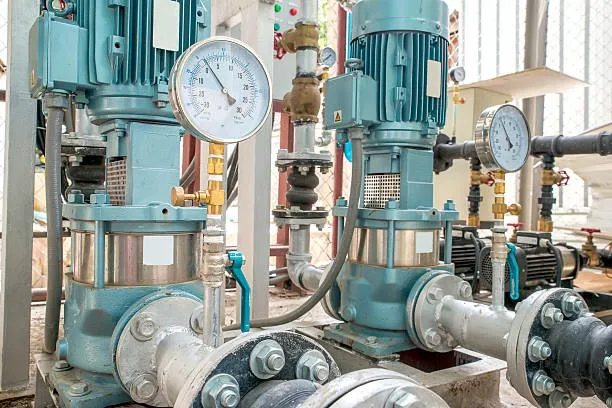
Boiler Repair in Harrisburg, PA
When your boiler stops working in the middle of a Harrisburg winter, it is more than an inconvenience; it is a safety and comfort issue. Boilers are central to heating in many Harrisburg homes, especially older rowhomes and houses with hydronic systems. Prompt, professional boiler repair restores reliable heat, eliminates safety risks like carbon monoxide leaks, and prevents small problems from becoming costly failures.
Common boiler repair issues in Harrisburg homes
- Ignition problems - failed electronic igniters or intermittent ignition prevent burners from lighting, leading to no-heat calls.
- Pilot failures and thermocouple issues - on older systems with a standing pilot, the pilot can go out or the thermocouple can fail, shutting the gas valve.
- Leaks and water loss - corroded fittings, failed valves, or a ruptured heat exchanger cause leaks and pressure loss in hot water systems.
- Pressure loss and expansion tank failure - low system pressure or a waterlogged expansion tank can cause the boiler to cycle off or fail to heat properly.
- Circulator pump and zone valve failures - stuck pumps or valves result in uneven heating or no flow to radiators and baseboards.
- Strange noises and kettling - mineral scale build-up from Harrisburg’s moderately hard water can cause banging, gurgling, or kettling in the heat exchanger.
- Control board and sensor failures - aging controls and sensors lead to erratic operation or safety lockouts.
- Flue and venting issues - blockages or improper draft create combustion or carbon monoxide risks.
Diagnostic process — what a technician will do
A professional diagnostic follows a step-by-step approach to find the root cause rather than treating symptoms:
- Visual inspection of the boiler, piping, vents, and combustion area for obvious leaks, corrosion, or damage.
- Review of system history and controls to understand past issues, maintenance, and unusual cycling patterns.
- Gas supply and ignition checks to verify fuel delivery and ignition sequence for safe burner operation.
- Pressure and temperature measurements to identify loss of pressure, overheating, or faulty gauges.
- Combustion and carbon monoxide testing to confirm safe burn efficiency and rule out CO hazards.
- Pump, valve, and thermostat testing to isolate circulation or control problems.
- Leak detection and heat exchanger evaluation to check for internal cracks or scale-related restrictions.
- Clear findings and recommended repair plan so you understand options and expected outcomes.
Emergency boiler repair response in Harrisburg
Boiler breakdowns can be urgent in cold weather or when carbon monoxide is suspected. Emergency response prioritizes:
- Immediate safety triage and CO detection.
- Securing the system to prevent further damage or hazard.
- Temporary measures to restore heat when possible while parts are sourced.
- Rapid deployment of experienced technicians trained on common Harrisburg boiler models and the specific needs of older hydronic systems.
Local weather and heating patterns in Harrisburg mean quick response is critical during extreme cold snaps to protect pipes and occupants.
Parts replacement and warranty information
Common parts replaced during boiler repair include:
- Ignition modules and thermocouples
- Circulator pumps and zone valves
- Pressure relief valves and expansion tanks
- Sensors, thermostats, and control boards
- Heat exchangers and flue components
Repairs using OEM-quality parts help preserve efficiency and longevity. Manufacturer parts typically carry their own limited warranties; many service providers also offer a labor warranty for the work performed. When discussing repairs, confirm what parts warranties apply and whether a labor warranty covers the repair interval.
Typical repair timelines and cost considerations
- Minor repairs such as replacing a thermostat, thermocouple, or a zone valve are often completed in a single visit.
- Repairs requiring hard-to-find parts or heat exchanger replacement may require additional time for parts procurement and could extend to several days.
- Factors that influence repair time and cost include the boiler’s age, accessibility, whether the system is steam or hot water, the availability of replacement parts, and whether additional damage (for example, from leaks) must be corrected.
- Repeated failures, a cracked heat exchanger, or obsolete controls can make replacement a more cost-effective long-term solution than ongoing repairs. Evaluate repair versus replacement based on system age, efficiency, repair history, and safety.
Note: repair cost is driven by scope, parts, and labor rather than a one-size-fits-all price. A qualified technician will provide a clear estimate after diagnosis.
Safety checks performed after repairs
After any repair, technicians should perform a full safety and performance verification:
- Combustion efficiency and CO testing of flue gases.
- System pressure test and leak verification.
- Flue draft and venting inspection to ensure proper exhaust.
- Confirmation of proper ignition and burner operation.
- Circulator and zone operation checks for correct flow to all heating zones.
- Thermostat calibration and final functional test to ensure consistent heat delivery.
- Documentation of work performed and recommendations for follow-up maintenance.
These checks protect occupants and ensure the repair restored both safety and system reliability.
Preventive maintenance and local recommendations
Harrisburg’s seasonal temperature swings and water quality can accelerate wear. Preventive steps extend boiler life and reduce emergency calls:
- Annual pre-season tune-ups to clean burners, test combustion, and inspect controls.
- Periodic flushing to reduce scale in areas with hard or mineral-laden water.
- Regular checks of expansion tanks, relief valves, and system pressure.
- Prompt attention to odd noises or uneven heating before they escalate into larger failures.
Many homeowners in Harrisburg find scheduled maintenance reduces winter breakdowns and improves fuel efficiency.
Timely, professional boiler repair restores comfort and safety while protecting your home and investment. Clear diagnostics, transparent parts and warranty handling, and comprehensive safety testing are the standards you should expect for boiler repair in Harrisburg, PA.


Enjoy flexible financing options that make upgrading or repairing your HVAC system easy and budget-friendly.










